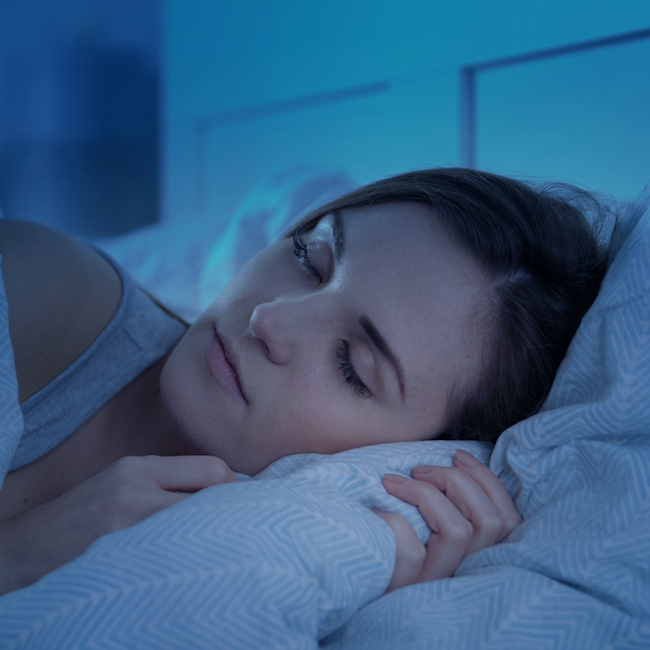
Your caffeine habits are a factor in your sleep hygiene quality. According to Dr. Mike Dow, the New York Times bestselling author of The Brain Fog Fix and a Natrol ambassador, sleep hygiene refers to the collection of healthy habits that tell your brain it’s time to sleep. Other aspects of this include what time you go to bed, the amount of time spent on screens before bed, the temperature in your room, and even how dark your room is. “There are also more emotional sleep problems like burnout, depression, and anxiety—this too can disrupt healthy sleep-wake rhythms. Feeling overwhelmed or stressed out as you're falling asleep can make it hard to fall asleep as the mind races. These states can all deplete calming neurotransmitters like serotonin, which is also the precursor to melatonin.”
Dr. Dow recommends supplementation as something that can support your overall sleep hygiene—he cites Natrol Sleep + Calm as a good place to start, as it targets the physical and emotional causes of poor sleep. “The melatonin helps to align your natural circadian rhythms with the natural amino acid L-Theanine, and botanicals like chamomile and lemon balm.”
How much caffeine you consume can throw off everything from what time you go to sleep to the amount of anxiety you experience, so it’s important to monitor your caffeine intake, especially if you struggle with sleep. But how exactly does it affect your body? “Not surprisingly, research has shown that coffee late in the day can increase the time it takes to fall asleep and can reduce the amount of total time sleeping. But it can also negatively affect your sleep quality,” Dr. Dow says, “This means that you may not be getting enough of the two most important types of sleep: the physically-restorative deep sleep which occurs mostly in the first few hours after falling asleep, and REM sleep which is important to your mental health. Poor sleep is often the first domino that can set off other health risks.” Not getting enough sleep can also lead to increased risk of long term illness like cardiovascular disease, cancer, and dementia.
This doesn’t mean you have to cut out caffeine completely—what time you drink coffee can make a radical difference in how it affects your sleep. However, there isn’t a definitive cut off time for everyone, as the rate at which one metabolizes caffeine is very individualized. “If you've had genetic testing done and know that you are a fast caffeine metabolizer and are a healthy adult, you can have your last cup of coffee in the late afternoon--around 4pm; fast metabolizers are also able to tolerate higher amounts of caffeine (up to 300-500 mg) without health risks. On the other end of the spectrum, slow metabolizers should stop drinking coffee at noon-- and should stay under 300mg of caffeine daily.” If you’re unsure, it’s okay to make an educated guess—try cutting off your coffee caffeine consumption earlier in the day and see if your sleep quality improves.
Coffee is a great way to get an extra boost of energy during the day, but too much of anything can have negative effects. Being mindful of what time you’re drinking coffee in the day can help to promote better sleep hygiene. If you find that even after adjusting your caffeine and bedtime habits your sleep quality still hasn’t improved, you should consult with your doctor to rule out any other conditions.


